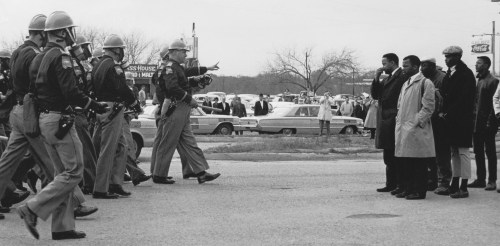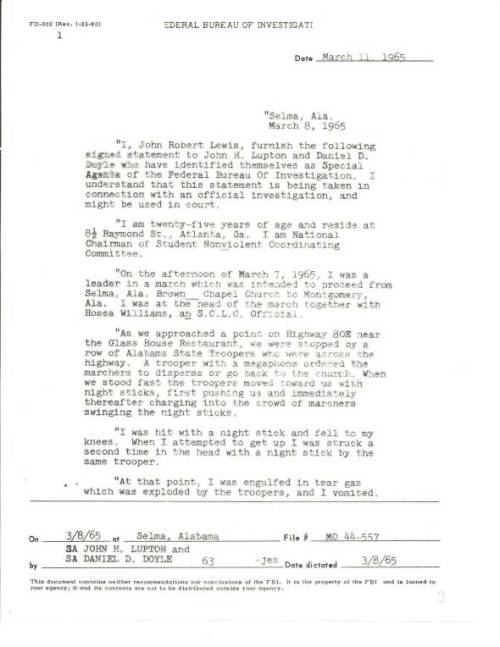usnatarchives: Rep. John Lewis talking with a Somali child during Operation Restore Hope, 1993 (Nati
usnatarchives: Rep. John Lewis talking with a Somali child during Operation Restore Hope, 1993 (National Archives ID 6508426) President Barack Obama embracing Rep. John Lewis, 3/7/2015 (National Archives ID 157649496) Photograph of the two-minute warning on Bloody Sunday, March 7, 1965. (National Archives ID 16899041) Statement of John Lewis regarding Selma’s “Bloody Sunday,” March 8, 1965. (Records of the FBI, National Archives) John Lewis with President Obama and others at the 50th Anniversary of the Selma March (National Archives ID 157649500) We Remember Civil Rights Legend John Lewis There is perhaps no single figure whose own life and career embodies the promise, success, and continued challenges of civil rights for Black Americans than John Lewis. We mourn this tremendous loss and look back on his incredible history through our holdings dating back to the early 1960s, including the March on Washington and the “Bloody Sunday” Selma March. Hear Rep. Lewis describe his meeting with JFK before the March on Washington (from his Oral History for the JFK Library). It was in this meeting… somehow out of the blue A. Philip Randolph says something like, “Mr. President, the black masses are restless,” in his baritone voice. “The black masses are restless, and we’re going to march on Washington.” And you could tell by the body language of President Kennedy, he just sort of moved and twisted and turned in his chair, he didn’t necessarily like what he heard. And he said, “Mr. Randolph, if you bring a lot of people to Washington, won’t there be a crisis, disorder, chaos? And we would never be able to get a civil rights bill through the Congress.” And Mr. Randolph responded and said, “Mr. President, this will be an orderly, peaceful, nonviolent protest.” And President Kennedy sort of said, “Well, I think we’re going to have problems. But we all have problems, and we can solve those problems.” See John Lewis in The March (the film documenting the 1963 March on Washington for Jobs and Freedom, restored by the National Archives Motion Picture Preservation Lab). At 23 he was the youngest speaker that day and was the last remaining living speaker. See also: FBI Case File #44-28492: Bloody Sunday, Rediscovering Black History blog post by archivist Dr. Tina Ligon Selma, Edmund Pettus Bridge FBI Case File, Rediscovering Black History blog post by archives specialist Netisha Currie Testimony of John Lewis in Court Case resulting from 1965 March from Selma to Montgomery, Alabama Archivist of the United States David S. Ferriero introduces Rep. John Lewis at National Archives event celebrating the 50th Anniversary of the March on Washington Video: John Lewis on Rights and Justice in America -- source link
Tumblr Blog : usnatarchives.tumblr.com




